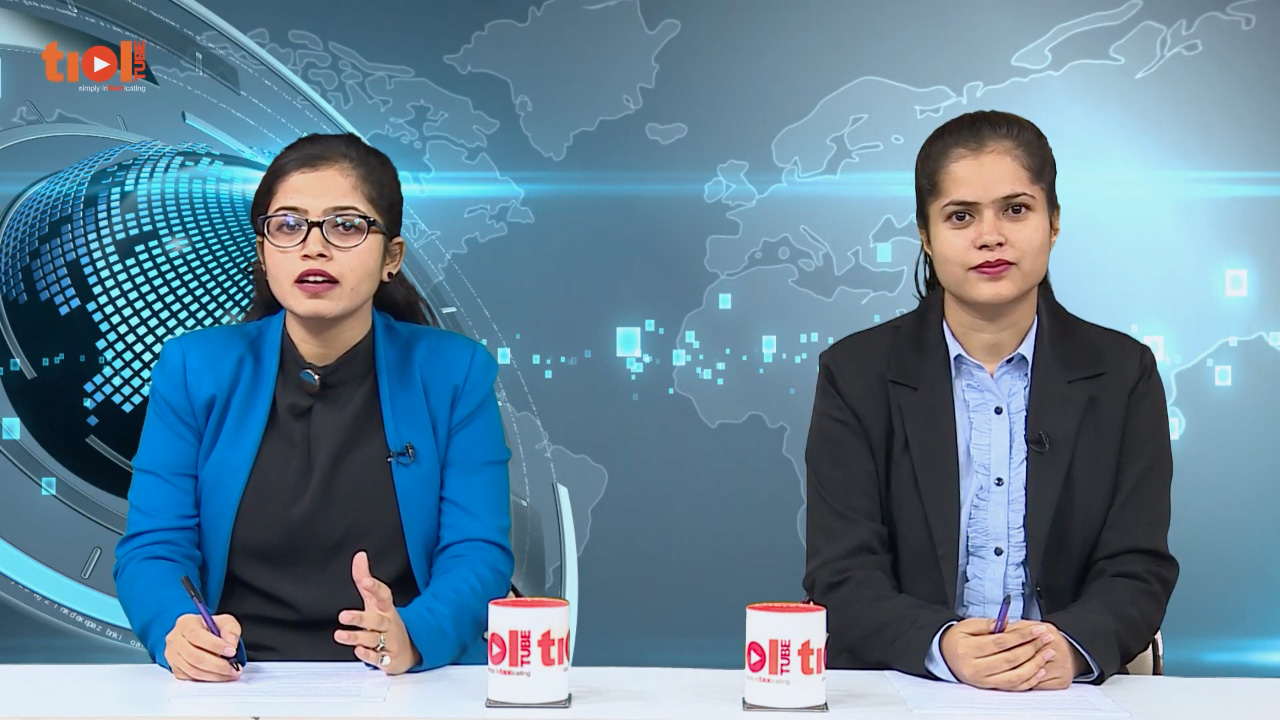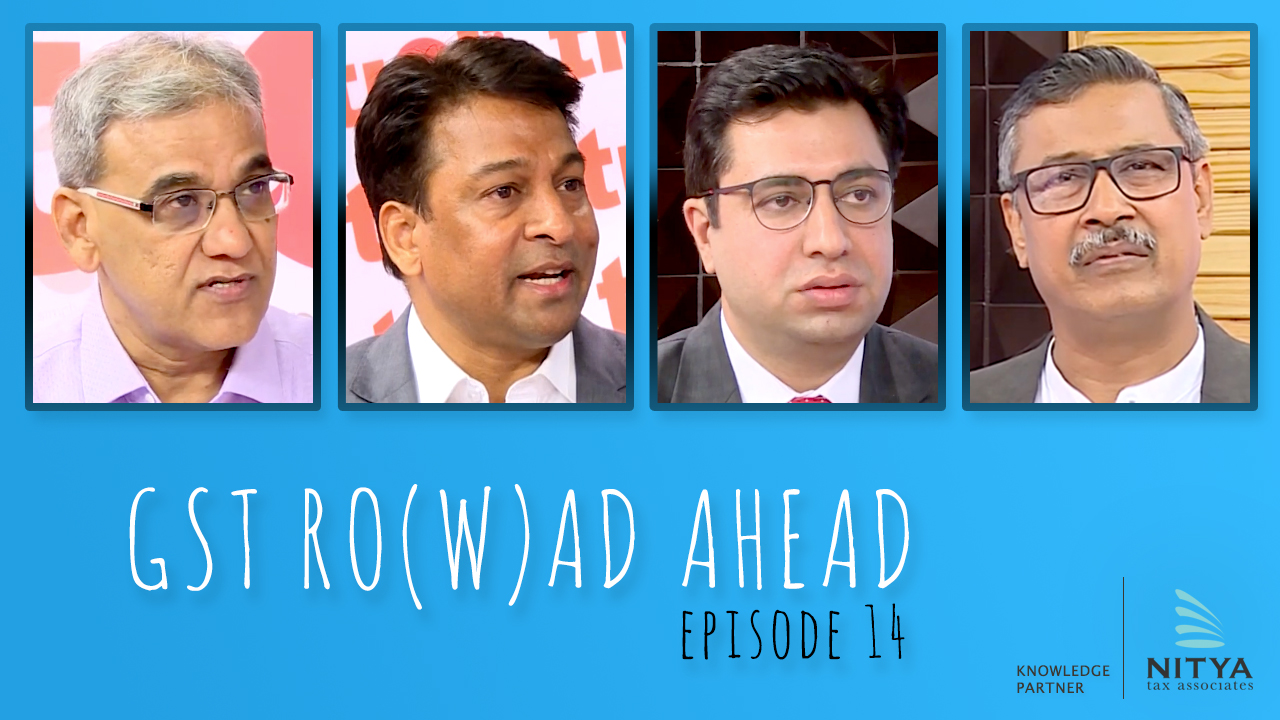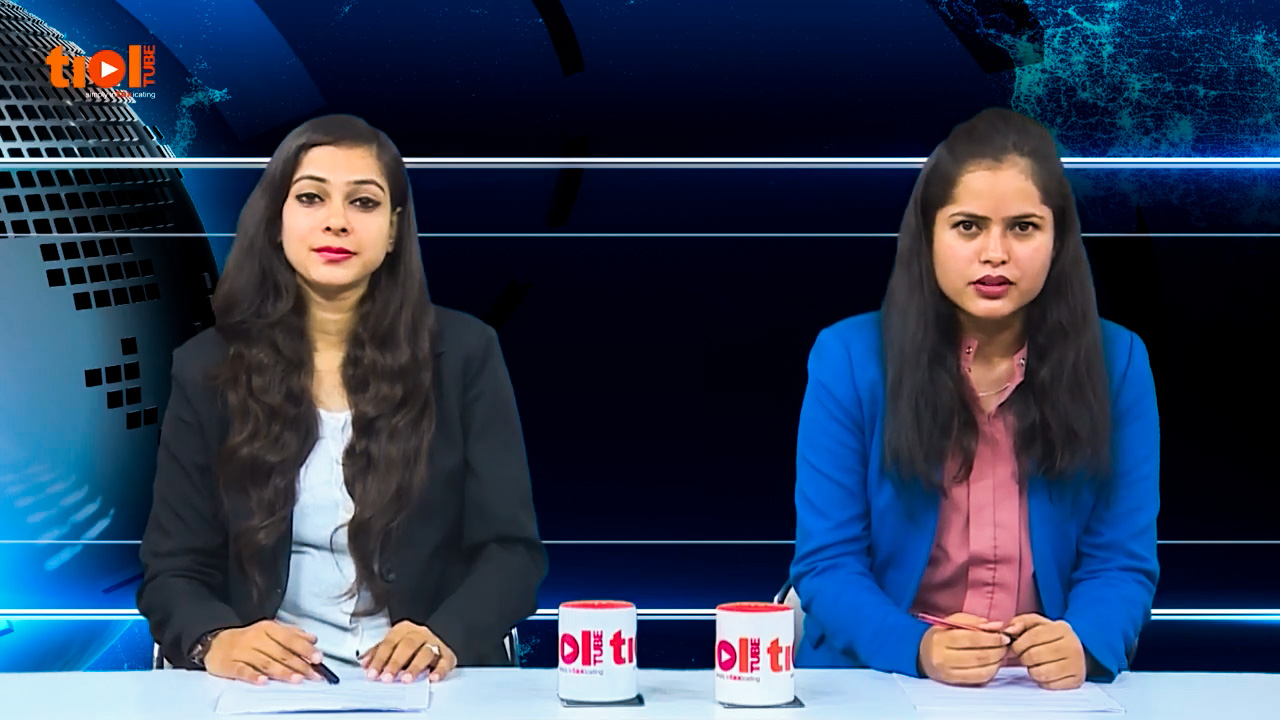|
SERVICE TAX
2019-TIOL-2890-CESTAT-DEL
Khandelwal Construction Company Vs CCE
ST - Assessee is providing services as that of cargo handling, management, maintenance or repair, commercial or industrial construction, rent-a-cab operators and site formation clearance, excavation and earth moving/demolition services - Department noticed that assessee has short-paid an amount of Rs.24,92,399/- during the period from 01.07.2003 to 31.03.2006 for providing the aforesaid services - Accordingly, a SCN was served upon them proposing the recovery with interest and the penalties - As regards to cargo handling service, assessee have provided manual labour for loading of urea and charcoal and thereafter for unloading the collection of loose urea for the internal shifting in the premises of M/s. DCM Shriram Consolidated Ltd. - It becomes clear that merely a fact of urea being loaded, the entire said activity does not qualify the definition - In Gajanand Aggarwal - 2008-TIOL-2076-CESTAT-KOL , the High Court of Punjab & Haryana has held that in the case of handling of goods using conveyor system that too in the factory, the activity will not fall within the definition of cargo handling - The demand is, therefore, held to have been wrongly confirmed vide the order under challenge - As regards to commercial or industrial construction service, assessee have paid service tax with respect to this activity - However, after availing the benefit of Notfn 15/2004 amended by Notfn 1/2006 under which the value of free supply of material by the service recipient need not to be included - The view has already been affirmed by the Apex Court in case of Bhayana Builders Pvt. Ltd. 2018-TIOL-66-SC-ST - Therefore, no error found in the order vide which the tax liability for commercial and industrial construction services has been confirmed - As regards to maintenance and repair service, it is clear that maintenance and repair services were made taxable w.e.f. 16.06.2005 only - It is an undisputed fact that assessee is discharging their liability qua the services post 16.06.2005 - The Adjudicating authority has failed to consider the said aspect - Hence, the confirmation of demand for painting work is set aside - As far as of maintenance of railway track is concerned, in addition to the above reason the adjudicating authority has also failed to observe that part payment of the service tax against Bill has not been considered - Resultantly, the differential demand in respect of maintenance of railway track is hereby set aside - As regards to excavation services, undisputedly, the demand has been raised based on Bill apparently the same pertains to the work of extension of godown, which from no stretch of imagination can be called as excavation - Mere mention in the said bill of excavation of godown is mere way of nomenclating by the service provider or the recipient - The same cannot be a ground for denying that the service provided was merely of extension of the godown - There is otherwise no dispute to the said fact - Confirmation of demand merely on the nomenclature of service is set aside - With regard to rent a cab service, assessee have relied upon the certificate given by Ghiya services, the sister concern of assessee declaring that they have duly paid service tax on the taxing higher income received from DCM Shriram Consolidated Ltd. to whom the taxis taken on rent from Khandelwal Construction Co. during the year 2004-05 and 2005-06 were supplied also that no service tax credit has been taken by them - The document is very much on record - But the adjudicating authority has failed to consider the same - Once the service tax liability stands already discharged, any confirmation of demand for the same amount and the same period shall amount to double taxation, which is not permissible under statute - The SCN proposing the demand for period 01.07.2003 to 31.03.2006 has gone beyond the normal period of one year without the entitlement of Department to invoke the extended period - Hence, the SCN as such, is held to be barred by time: CESTAT
- Appeal allowed: DELHI CESTAT
2019-TIOL-2889-CESTAT-ALL
NS Construction Company Vs CCE & ST
ST - Assessee had filed VCES declaration on 30 December, 2013 declaring therein tax dues of Rs.68,828/- including a calculation sheet wherein it was declared that for the month of November, 2012 taxable value was Rs.9,27,400/- and for the month of December 2012 taxable value was Rs.13,00,048/- - It was further declared that on the said taxable value of Rs.22,27,448/- total tax liability was Rs.2,75,312.57 and out of the same 75% was paid by service receiver M/s SNC Power Corporation (P) Ltd. and rest 25% was declared as tax dues by assessee - A SCN was issued invoking Section 111 of FA, 2013 and making an allegation that assessee had made substantially false declaration of tax dues of Rs.68,828/- whereas the tax liability on assessee was Rs.12,34,193/- and therefore demanded Service Tax of Rs.11,65,365/- - The declaration was for the months of November 2012 and December 2012 whereas the said declaration was held to be substantially false on the basis of service tax due calculated on the basis of information in Form 26AS for the period from 01 April, 2010 to 31 December, 2012 - Since the comparison of tax dues declared for a larger period of tax dues was made said comparison is insufficient to hold the declaration to be substantially false - If the declaration was for two months, the tax dues should have been examined for same period to establish whether the declaration was substantially false - Further, there is no examination of activities for which assessee had received payments as reflected in Form 26AS - Unless it is established that entire payments received as reflected in Form 26AS were on account of services provided and such services did not have any provisions for abatement nor there were any exemption then only such payments received are required to be considered as consideration for computation of Service Tax - Since such exercise was not undertaken, the demand raised is presumptive: CESTAT
- Appeal allowed: ALLAHABAD CESTAT
2019-TIOL-2888-CESTAT-ALL
Narendra Prasad Tripathi Vs CCE & ST
ST - The entire dispute revolves around the delivery of impugned order - Whereas Commissioner (A) has relied on the report of Assistant Commissioner indicating that the order impugned was served upon assessee on 02.01.2018 by hand and had also enclosed a copy of relevant page of dispatch register before Commissioner (A) but the said report was not disclosed to assessee - It is well settled that if authorities intend to rely upon any document for holding against the assessee, the principles of natural justice require disclosure of the said document to the assessee as also to supply, a copy of the same, for their comments - Accordingly, matter is remanded to Commissioner (A) for fresh decision: CESTAT
- Matter remanded: ALLAHABAD CESTAT
CENTRAL EXCISE
2019-TIOL-2893-CESTAT-AHM
Plastiblends India Ltd Vs CCE & ST
CX - The assessee have received various inputs for manufacture of final products on payment of CVD and SAD and availed Cenvat credit - Part of inputs were sold as such, on which the duty was paid on transaction value - However, there was short payment of duty in terms of Rule 3(5) of Cenvat Credit Rules as the amount paid by assessee is short as compared to the amount of credit availed by assessee - Accordingly, a SCN demanding duty of Rs. 11,04,819/- was issued on the basis of audit objection - The assessee calculated the differential duty and paid Rs. 9,77,045/- and there was a difference of Rs. 1,27,774/-, between the department's calculation and the assessee's calculation - The Adjudicating Authority confirmed the demand of Rs. 11,04,819/- and imposed equal amount of penalty under Section 11AC, and appropriated an amount of Rs. 9,77,045/- paid by assessee along with interest before issuance of SCN - Assessee is contesting only demand of Rs. 1,27,774/- and equal amount of penalty imposed under Section 11AC - As regards the differential duty amount, assessee had submitted detailed calculation on the basis of bills of entry under which the inputs were procured and invoices under which the inputs were sold as such - According to assessee, the correct duty amount is Rs. 9,77,045/- - The Adjudicating Authority obtained report from the field formation however, the report was obtained at the back of assessee after concluding the hearing - Since in the report also there is difference of Rs. 1,27,774/- it was incumbent on the Adjudicating Authority to provide a copy of the report and seek explanation from the assessee, which the Adjudicating Authority has failed to do - Therefore, there is a clear violation of natural justice - The matter needs reconsideration for calculation of amount of duty as well as penalty imposed under Section 11AC: CESTAT
- Matter remanded: AHMEDABAD CESTAT
2019-TIOL-2892-CESTAT-ALL
Hindon River Mills Ltd Vs CCE
CX - The assessee-company manufactures Cotton Yarn & Fabrics of Cotton classifiable under Chapter 52 of the First Schedule to the CETA 1985 as well as Blended Yarn of Polyester and Cotton, Ployester Viscose Yarn, Fabrics of Polyester Viscose and Polyester Cotton classifiable under Chapter 55 of the Act - The yarn produced by the assessee was partly consumed for manufacturing Grey and processed fabrics while part of the same were sold - The provisional assessment for the relevant period was finalized through an O-i-O - The assessee's appeal was dismissed by the Commr.(A) - The Tribunal later remanded the matter to the original authority with directions to finalize assessment after issuing notice to the assessee - Thereafter, an SCN was issued proposing finalization of provisional assessment in respect of goods captively consumed by taking the cost of production including the profit margin which would normally be earned on the sale of such goods, disallowance of 1% deduction taken on account of selling expenses for arriving at assessable value of yarn captively consumed, making the highest of prices available the basis for determining assessable value, treating amount of 1% collected as depot charges by consignment agent as extra consideration and including it in assessable value & finalizing assessment based on panchnama - The proposals in the SCN were finalized whereupon duty demand was raised for such period - On appeal, the Commr.(A) remanded the matter for re-adjudication by considering the applicability of a decision of the Tribunal - On re-adjudication, the original authority reiterated the duty demands and the same were upheld by the Commr.(A) - Hence the present appeal.
Held - From the Tribunal's order remanding the matter for re-adjudication, it emerges that the matter was remanded on account of violation of the principles of natural justice, as no SCN had been issued to the assessee - The documents relied against them were not made available to the assessee and no personal hearing had been granted before adjudicating the matter - The Tribunal while remanding the matter noted that the assessee filed price declarations, based on which the assessments were ordered to be made provisional - In light of such observations, there is no merit in the assessee's submission that the O-i-A and the O-i-O before it were passed in contravention of the Tribunal's directions for remand - Moreover, the adjudicating authority had not brushed aside the decisions referred to by the Tribunal in its order remanding the matter but found the said decision to be distinguishable on facts - The assessee did not contest the findings of the adjudicating authority either in the appeal memo or in the course of hearing - They produced no evidence to contradict these findings - While the principle of law laid down in the decisions relied on by the assessee are not disputed, but their applicability to the present case is disputed - Hence there is no merits in the assessee's submissions relying on the decisions in Indian Oil Corporation and Jai Bhawani Steel Enterprises : CESTAT
Held - Captive consumption - Considering the findings of the Apex Court in Procter & Gamble Hygiene & Health Care Ltd. v. Commissioner of Central Excise, Bhopal the assessee's contention that their factory gate sale price which is much below the cost of the production of the goods can be termed as normal price for determining value u/s 4 of the CEA 1944, cannot be accepted - In the present case, the assessee sought to apply the the loss making price for determining value of goods captively consumed - Besides, the fact of undervaluation as determined by the Adjudicating authority is based on documents and records of the assessee and its own submissions - The assessee does not dispute the findings but challenged the order merely on grounds of applicability of certain decisions wherein it was held that in case of captively consumed goods, their value be determined based on factory gate sale price - However, also considering the findings of the Apex Court in Universal Glass Ltd , the matter warrants remand for re-determining the value in respect of goods captively consumed: CESTAT
Held - Stock transfers - In respect of the stock transfers to the depot for the sale from depot, the value in terms would have to be finally determined in terms of Section 4(2) of the CEA 1944 - It will be the sale price of the goods stocked transferred to the depot, when sold to independent buyers and the sale price being the consideration for sale - The assessee must satisfy the adjudicating authority w.r.t. the actual size price from the depot for finalization of the value as per Section 4(2) - Hence the matter warrants remand for reconsideration of this issue as well: CESTAT
Held - In case of clearance of fabric, the assessee discharged the duty based on the actual sale price to the independent buyers - When the assessee paid duty on the basis of actual sale price to the independent buyers, without showing additional consideration in any form being received by the assessee, the Revenue cannot discard the value determined by the assessee for discharging the duty - In the O-i-O, duty demand was raised on the sale of fabric to the independent buyers based on increase in cost of production on account of increase in value of the yarn captively consumed - The basis adopted by the adjudicating authority for determining the value of processed fabrics actually sold to the independent buyer, cannot be ascertained - It was not stated that any additional consideration in any form over and above the sale price was received from the independent buyer - Hence the demand in respect of the processed fabrics sold to independent buyers cannot be upheld - The adjudicating authority is directed to determine whether any consideration over and above the actual sale price to independent buyers has been received - If no such consideration is established, the demand cannot be made in respect of the sale of processed fabrics to independent buyers - Hence the matter warrants reconsideration: CESTAT
- Case remanded: ALLAHABAD CESTAT
2019-TIOL-2891-CESTAT-KOL
Hindustan National Glass And Industries Ltd Vs CCGST & CE
CX - The assessee is engaged in manufacture of "Glass & Glassware" viz. Glass Bottles - A fire had broken out in the manufacturing unit of assessee on 10/08/2011 due to which certain packing material required for finished goods were damaged - The assessee had taken CENVAT Credit on such packing material considering them to be inputs - They received certain amount from the insurance company towards the said loss, which was accounted for by assessee in its Books of Accounts - During audit, the Departmental officers observed that the assessee had taken irregular credit as they were liable to reverse the said amount of duty on the packing material destroyed in the fire - The assessee had never stated the fact of having issued the packing material to the production floor prior to the proceedings before this Tribunal - Factual submissions being made for the first time before the Tribunal cannot be entertained - The Tribunal being an Appellate Authority cannot be presented with different or additional set of facts as compared to the facts presented before the lower authorities - Therefore, it is not possible to test the veracity of the additional factual submissions of assessee at this stage - The duty amount of which credit was availed before the fire incident in August 2011, has already been reversed in May 2015 which has been duly recorded in impugned order - Therefore, the duty amount already stands paid by way of reversal of credit which is not in dispute - Since the assessee had sufficient credit balances, in any case, there would be no loss of Revenue to the exchequer - Therefore, the imposition of interest and penalty in the present proceedings cannot sustain and hence, the same are set aside - Duty amount since already paid is not interfered with: CESTAT
- Appeal disposed of: KOLKATA CESTAT
CUSTOMS
2019-TIOL-2887-CESTAT-DEL
Akshar Telecom Pvt Ltd Vs CC
Cus - The assessee-company imported mobile phones classifiable under CTH 85171290 & paid CVD @ 6% on it till 28.2.2015 and thereafter @ 12.5% after 01.3.2015 - The CVD was equivalent to the Excise duty leviable on the domestically produced goods - Notfn No 12/2012-CE provided excise duty rate of 1% if no credit was taken in respect of inputs or capital goods used to manufacture such goods - The reduced rate of duty was not extended to the importers for payment of CVD, on grounds that the exemption under Notfn No 12/2012-CE is not available for imports as provisions of Cenvat credit were inapplicable to the imported goods as credit was inadmissible to them - Thereafter, the Apex Court in M/s SRF Ltd. vs Commissioner of Customs, Chennai while interpreting a similar Notfn No 06/2002-CE held that reduced rate of Excise duty would be applicable to CVD even in respect of imported goods, sincne no question of availing Cenvat credit under CCR 2004 arises if inputs are procured from a country other than India - Pursuant to such judgment, the assessee claimed refund for the relevant periods - SCN was issued proposing to reject the refunds on grounds of their not being filed with complete details, that goods were cleared without claiming exemption under Notfn No 12/2012-CE, that the Apex Court's decision in M/s SRF Ltd was distinguishable from the assessee's case & that the refund claim was barred by limitation - On adjudication, the refund claims were rejected on merits as well as on limitation and it was held that there was no need to delve into the aspect of unjust enrichment - On appeal, the Commr.(A) held the refund applications to be proper and within limitation, that the grounds for rejection of refund were untenable, that the refund claim was maintainable without need for separate re-assessment proceedings & that the decision in M/s SRF Ltd. was squarely applicable to the assessee's case - Such findings attained finality as they were not challenged by the Revenue - The Commr.(A) also held that the assessee failed to prove that the incidence of CVD was not passed onto the customers and hence did not qualify the bar of unjust enrichment - However, the refund amount was directed to be transfered to the CWF - Hence the present appeal against such findings.
Held - The only question to be answered is whether the assessee crossed the bar of unjust enrichment or whether there is some element of unjust enrichment which necessitates deposit of refund amount to the CWF or not - The principal of unjust enrichment refers to an equitable principle that no person should be allowed to get enriched at the expense of others - From perusal of requisite information put forth by the assessee, it is seen that while CVD rates went up, the retail sale prices both for dealers as well as ultimate consumers has generally gone down or remained the same - There is no doubt that increased rate of CVD was borne by the importer and its burden was not passed onto the customers - Price comparison of various models of imported mobile phones indicates that prices at which the assessee sold their products to its dealers and the RSP has generally come down or remained constant, establishing that burden of enhanced CVD from 7% to 13.5% was not passed onto the buyer - Hence the comparative analysis of prices, in a situation of change in tax rates, is absolutely important to decide whether the additional tax burden upon increase upon increase in tax rates is being shifted to the buyer or not - This also has to be the important parameter to determine whether in a given situation, there is a presence of unjust enrichment - In the case at hand, the prices both dealer price & RSP, indicate that the burden of enhanced rate of CVD has not been shifted to the buyers - Therefore, there cannot be any element of unjust enrichment - It is also seen that refund on similar issue already was sanctioned to the assessee primarily based on the CA certificate and price structure - Hence there is no reason for the Revenue to not accept the refund in the present case - The assessee sucessfully established beyond dount that burden of enhanced CVD was not passed down to the buyers & hence no element of unjust enrichment is present in this case - Hence the refunds are admissible to the assessee & the O-i-A in question merits being quashed: CESTAT
- Assessee's appeals allowed: DELHI CESTAT
2019-TIOL-2886-CESTAT-BANG
V Stanley Paulus Vs CCT & CE
Cus - During the relevant period, the Revenue received specific intelligence that one M/s Island Aviation Services Ltd were indulging in illegal export of medicine, textiles and other goods to Maldives and that USD currency was being imported apart from other articles, from Maldives to Trivandrum, in the guise of passenger baggage - The AIU officers intercepted a consignment, which was intended to be lifted to Maldives without being reflected in the export cargo manifest or in any other documents - Since the consignment did not appear to be genuine baggage of a passenger, it was offloaded from the aircraft - Upon being opened, a quantity of posters were found & seized - Later on adjudication, penalty was imposed on the appellant - Such findings were confirmed upon adjudication and later by the Commr.(A) - Hence the present appeal.
Held - The packet containing 193 posters of Maldives Airlines was being handed over to one Maldivian passenger who was flying to Maldives and this quantity is not prohibited quantity - Moreover, the value of the same is considerably low - The Revenue's counsel could not convince the court that such baggage is not bona fide or that is contravenes the Baggage Rules - The counsel could not point out which rule was being violated in the present case - Nothing is brought on record against the assessee which shows him to be involved in any illegal export - Hence the penalty imposed on the assessee u/s 117 of the Act is untenable and must be set aside: CESTAT
- Assessee's appeal allowed: BANGALORE CESTAT |
|







